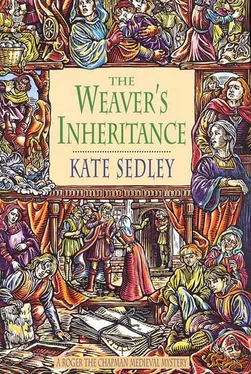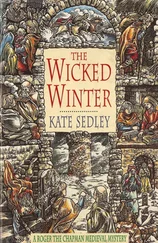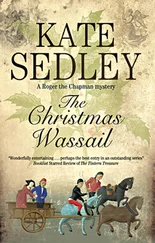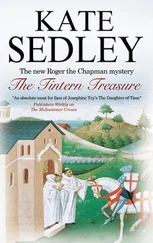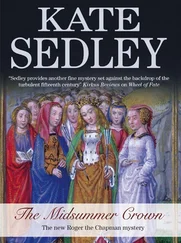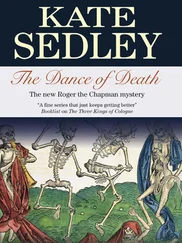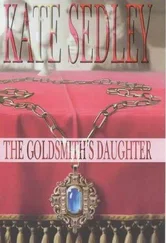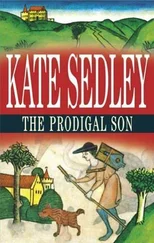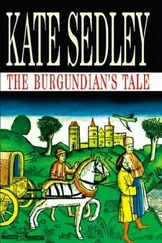Kate Sedley - The Weaver's inheritance
Здесь есть возможность читать онлайн «Kate Sedley - The Weaver's inheritance» весь текст электронной книги совершенно бесплатно (целиком полную версию без сокращений). В некоторых случаях можно слушать аудио, скачать через торрент в формате fb2 и присутствует краткое содержание. Жанр: Исторический детектив, на английском языке. Описание произведения, (предисловие) а так же отзывы посетителей доступны на портале библиотеки ЛибКат.
- Название:The Weaver's inheritance
- Автор:
- Жанр:
- Год:неизвестен
- ISBN:нет данных
- Рейтинг книги:4 / 5. Голосов: 1
-
Избранное:Добавить в избранное
- Отзывы:
-
Ваша оценка:
- 80
- 1
- 2
- 3
- 4
- 5
The Weaver's inheritance: краткое содержание, описание и аннотация
Предлагаем к чтению аннотацию, описание, краткое содержание или предисловие (зависит от того, что написал сам автор книги «The Weaver's inheritance»). Если вы не нашли необходимую информацию о книге — напишите в комментариях, мы постараемся отыскать её.
The Weaver's inheritance — читать онлайн бесплатно полную книгу (весь текст) целиком
Ниже представлен текст книги, разбитый по страницам. Система сохранения места последней прочитанной страницы, позволяет с удобством читать онлайн бесплатно книгу «The Weaver's inheritance», без необходимости каждый раз заново искать на чём Вы остановились. Поставьте закладку, и сможете в любой момент перейти на страницу, на которой закончили чтение.
Интервал:
Закладка:
‘What about moles or old scars? Did your brother have any blemishes on his body which this man does not?’
She shook her head. ‘None that I recall.’ Was she lying? ‘But that’s irrelevant,’ she went on eagerly. ‘I keep telling you, I know the man is an impostor.’
I guessed that this line of enquiry would produce nothing further, for however stoutly she might deny it, Alison did not wish for her brother to be alive: she had grown too used to being sole heir to a considerable fortune. On the other hand, perhaps that was to do her an injustice. Instinct is a very powerful force, and is undoubtedly given to us by God for our protection.
‘Yet this man must know a lot about you and your family,’ I said. ‘Enough to convince Alderman Weaver that he is indeed his son. They cannot avoid discussing the past.’
‘Oh, I don’t deny the creature knows a great deal,’ Alison admitted. ‘That’s why I say he must have a partner; someone who knows us all well and who will share the fortune with him after my father’s death.’ She cast a fleeting, sidelong glance at her husband and could not resist adding, ‘A far bigger fortune, in fact, than could possibly have been foreseen at the start of this venture.’
William muttered something under his breath and stalked out of the room, closing the door behind him with a defiant thud. Judging by the tightening of Alison’s lips, I guessed there would be recriminations after I had gone, but for my benefit, she put on a brave show of standing shoulder-to-shoulder with him.
‘You mustn’t think I blame William for the way in which he stood up to my father. My welfare is his sole concern. The outcome was unfortunate, to put it mildly, and it’s true that he let his tongue run away with him. What he said was very bad, but then he was extremely incensed by my father’s foolish, irresponsible and totally unreasonable behaviour. And no one could have foretold that I would be cut out of the will entirely. Such a possibility was unthinkable and never entered either of our heads. Even the Broad Street servants were horrified when they heard of it. Dame Pernelle, the housekeeper, went so far as to remonstrate with my father, and was threatened with dismissal for her pains.’ Tears trickled down Alison’s cheeks and she dashed them away with the back of her hand.
‘Have you made no attempt at reconciliation with the Alderman?’ I asked gently. ‘It was my impression, all those years ago, that he was very fond of you and would certainly not wish to do you permanent injury.’
‘He has always been very fond of me,’ she gulped, ‘but this evil impostor whispers in his ear and poisons his mind against us. My father insists that he will not reinstate my name in his will unless William makes an abject, written apology to be presented on his knees, in the presence of all who overheard what was said — meaning, of course, the servants. But that is too much to ask of him. I will not, cannot, let him do it. I won’t allow my husband to be humiliated in such a fashion.’
The conditions did seem harsh, and I could understand the reluctance of both the Burnetts to comply with them, especially as William was a wealthy man in his own right and could live comfortably for the rest of his days without having to crawl to his father-in-law for money. All the same, a fortune was a fortune; and one as large as Alderman Weaver’s was not to be relinquished without a fight, particularly into the hands of an impostor (if that was indeed the truth of the matter).
‘Mistress Burnett,’ I said, ‘if this man is not your brother, he must, as you point out, have been primed by an accomplice concerning everything to do with Clement’s past life, with the exception of the last six years. I had already reached this conclusion for myself, because when my mother-in-law told me what had happened — I was absent from Bristol for the first few weeks of this month — I naturally felt a great personal interest in the story and thought about it very carefully. So, who would know your family well enough not only to recognize this man’s uncanny resemblance to your brother, but also to be able to instruct him in all the details of its history?’
Alison turned her chair a little more towards the fire and again held her delicate hands towards its warmth. ‘The most probable suspects are my Uncle John and his wife, Aunt Alice, who, as you doubtless remember, live in London. Then there are their children, my cousins George and Edmund. Both the boys are married now, and live with their respective wives in the ward of Farringdon Without, not far from their parents.’
‘Your Uncle John is your father’s brother.’
I had never seen John Weaver in person, but I had met Dame Alice, together with the elder son, George, and his wife, Bridget, during those weeks in London, six years earlier, when I had been trying to find out what had become of Clement. (At that time, as I recalled, Edmund had been unmarried and still living at home.) Alison had been fond of her kinsfolk in those days, and had stayed with her aunt and uncle whenever she had visited the capital. I asked her what had happened in the meantime to make her change her mind about them.
She shrugged. ‘Nothing. I’m still fond of them — until I have reason to feel otherwise. But my uncle, although well enough to do, has never amassed as much money as my father. He thought that by going to London all those years ago, he would make his fortune, while his stay-at-home, older brother wouldn’t thrive. I know it has always irked him that my father has done so much better than himself.’
‘Has he said so?’
‘Not directly. At least, not to me. Of course, he wouldn’t. But you know how it is: you can sense these things. In recent years — whenever he and Aunt Alice have visited Broad Street, or when we have stayed in Farringdon Without — his attitude towards my father has been less open and friendly. He frequently makes snide remarks on the subject of my father’s wealth, as though the thought of all that money angers him. On the occasions when either Father or I have taken exception to these remarks, my uncle just laughs and claims that they are only a bit of fun. “Can’t you take a joke?” he asks. But they’re not really jokes; there’s something bitter and twisted behind them.’ She added rather sadly, ‘The two families don’t see each other as much as they used to.’
‘And your cousins, George and Edmund, do they also feel this resentment towards your father?’
‘I’m afraid so. They have always been easily influenced by Uncle John. When William and I went on a visit to London two years ago, we both noticed how distant and cold the boys had become. I haven’t seen either of them since.’
I moved my chair a little closer to the fire as the air in the room began to strike chill. ‘What about their wives?’ I asked. ‘Is either of them the sort who would aid and abet her husband in a deception such as the one that we’re suggesting?’
‘Bridget would,’ Alison said, nodding her head decisively. ‘That’s George’s wife. She’s the kind of person who loves money, not to spend, but to hoard. I’m sure that just knowing it’s there, piling up under the floorboards or wherever they keep it, gives her a glow of satisfaction. She’s parsimonious when she has no need to be.’
I still remembered, six years on, the sallop, the ‘poor man’s beer’ made from wild arum, which Bridget had served me instead of decent ale, and thought that Alison was probably right. ‘What about Edmund’s wife?’ I asked.
My hostess gave a dry laugh that degenerated into a cough. ‘Lucy is exactly the opposite, as big a spendthrift as Bridget is a miser, and consequently they despise one another. Lucy gets rid of Edmund’s money as fast as he can make it. She’s so pretty that she can wind him round her little finger, and the poor fool’s so besotted, so proud to have her on his arm when they go out together, that he’s afraid even to remonstrate with her.’
Читать дальшеИнтервал:
Закладка:
Похожие книги на «The Weaver's inheritance»
Представляем Вашему вниманию похожие книги на «The Weaver's inheritance» списком для выбора. Мы отобрали схожую по названию и смыслу литературу в надежде предоставить читателям больше вариантов отыскать новые, интересные, ещё непрочитанные произведения.
Обсуждение, отзывы о книге «The Weaver's inheritance» и просто собственные мнения читателей. Оставьте ваши комментарии, напишите, что Вы думаете о произведении, его смысле или главных героях. Укажите что конкретно понравилось, а что нет, и почему Вы так считаете.
